Aislinn Brophy (they/she) is an actor, writer, and arts administrator based in the Atlanta area. She was born and raised in South Florida but made her way up to the frigid northeast for college. Their hobbies include pawning off their baking on anybody nearby, doing funny voices, and dismantling the patriarchy. Aislinn has a degree in Theater, Dance & Media, and her experiences as a performer consistently wiggle their way into her writing. In all aspects of her work as an artist, she is passionate about exploring identity and social justice issues. Their debut YA novel, How To Succeed in Witchcraft, is available now with a second untitled novel to follow.
First of all, welcome to Geeks OUT! Could you tell us a little about yourself?
Thanks for having me! My name is Aislinn Brophy, and I’m an author and an actor. I’m originally from South Florida, but now you can find me living in Atlanta with my lovely partner and our two cats. When I’m not working, I love dancing, making playlists for my friends, and playing D&D.
What can you tell us about your debut book, How To Succeed in Witchcraft? What was the inspiration for this story?
How to Succeed in Witchcraft is a YA contemporary fantasy that follows Shay, an overachieving witch at a prestigious magical magnet school in South Florida, who has to decide between getting the scholarship for magical university that she desperately needs or exposing the predatory drama teacher who controls the scholarship. It’s got potion brewing, a queer love story between two academic rivals, and magical musical theater!
I think my biggest inspiration for this book was the many years I spent at very intense schools. At this point in my life, I’ve thankfully fled academia for good, but I used to be a student who really bought into the idea that what I had to do to be successful was run myself into the ground. When I was writing How to Succeed in Witchcraft, creating Shay’s character was one of the easiest parts. Overachievers and their various hang-ups are very familiar to me.
Your book is said to be based on a practical magic system, interrogating the power dynamics of a world based on witchcraft, particularly within a system of dark academics. Could you talk about how you approached the world-building within the book?
The world-building was the part of the book that took the longest to come together. I revised the details of the history and magic quite a lot between the first and final drafts! As far as the history went, I wanted to create a world that had similar systems of oppression to ours, because that would be most useful to me in addressing the themes I wanted to touch on. I thought the best way to do that was to have a specific point in history that was recent (but not too recent) where magic was discovered. Then I wrote an alternate timeline for how history progressed from that point onwards. I identified some key historical events—wars, political movements, etc.—and then figured out how the presence of magic would have changed them. I think the big idea I had behind crafting the history was “what if magic just made capitalism worse?”
With the magic system, I started out with the idea that it was going to be very practical. It was going to be a system where skill with manipulating magic was quantifiable, and you could compare a witch to her peers and definitively say who was stronger. I also wanted magical skill to be practice-based rather than innate. You become more powerful in this world mostly by doing magic a ton. All of these elements were meant to play into the dark academia parts of the story. If you can quantify how strong witches and wizards are, and how good you are at magic is based on the sheer amount of hours you spend working at it, then all of that would make a cutthroat academic program even more toxic.
On social media, you’ve discussed how much it means to you that the main character of How To Succeed in Witchcraft is biracial and queer like you. Could you talk about what that representation and what representation in general means to you?
Of course, it’s incredibly important to see people that share identities with you represented in media. At this point, I hope that’s not a ground-breaking thing to be saying. I want everyone to be able to read books that speak to their experiences, as well as books that reflect on lives they’ll never lead and things they’ll never face. Personally, I don’t remember reading stories with characters that shared many identities with me when I was younger, and that shaped who I thought could possibly be the main character in books. A lot of my early writing had straight white protagonists, because I had got it in my head that those were the people who got to be the heroes in fantasy. Now that I’m creating stories that are more authentic to who I am as a writer, I realize just how much that mindset was getting in my way.
What I love most about the current moment in publishing is that going into the bookstore and looking at the shelves now feels very different to me than it did ten years ago. Obviously, there’s still a lot of racism, homophobia, and other oppressive forces at play in the industry. But now I can look at the shelves and see many more hugely successful books by marginalized authors. That’s no small thing.
I’m really proud to be adding How to Succeed in Witchcraft to this current publishing landscape. My goal is to build a body of work that shows a lot of different facets of being a queer biracial person. This book is just the start.
How did you get into writing, and what drew you to young adult fiction, specifically speculative fiction?
I’ve been completely and utterly obsessed with speculative fiction ever since I started reading it as a kid. The reason my vision is so terrible now is because I spent a lot of my time as a child reading fantasy books in near-darkness after my bedtime. So when I started writing novels as a teen, I knew I wanted to write something that would make other kids feel that totally earth-shattering excitement that I felt from reading a really good YA fantasy.
I have to credit fanfiction for getting me seriously into writing though. Before I made the switch to creating original work, I learned a lot of practical craft skills by writing a massive amount of fanfiction. That was a very formative experience for me as a writer. Fanfiction let me be unapologetically enthusiastic about creating stories, and it gave me a non-judgmental space to be bad. And honestly, you have to be a bad writer for a while before you become a good one, so I’m glad I got to do that in a place where nobody was really evaluating the quality of my work.
How would you describe your writing process? What are some of your favorite/most challenging parts for you?
My process is probably best described as controlled chaos. I learned early on in my writing journey that I get lost during drafting without some kind of road map, so now I make an outline of what is going to happen in the book before I get started. Usually that outline starts out detailed and becomes more and more vague as it goes along. By the end, my notes on the plot end up being things like “Character A and B talk about something????” or “resolve subplot here maybe.” I do my best to draft a book based on that, it inevitably doesn’t go the way I’ve planned, and then I revise the resulting draft into something actually good.
I struggle a lot with drafting, so that’s probably the most challenging part for me. I write slowly, and it’s hard for me to focus for long periods of time to get words on the page. On the other hand, I love editing. Thinking about the world I’m creating is tremendously fun for me, and I find that I get to do the majority of that once I have my bad draft on the page.
As a writer, who or what would you say are some of your greatest creative influences and/or sources of inspiration?
The two authors that I would say are my greatest sources of inspiration are N. K. Jemisin and Tamora Pierce. I’m the biggest fan of N. K. Jemisin’s work. I just think everything she writes is brilliant. The nuance she brings to exploring power and oppression in her books is something I hope to achieve in my own work. And Tamora Pierce is a writer that really shaped how I viewed fantasy from an early age. I loved The Song of the Lioness series and the Beka Cooper books. All the female protagonists in her novels were powerful in a way that always stuck out to me.
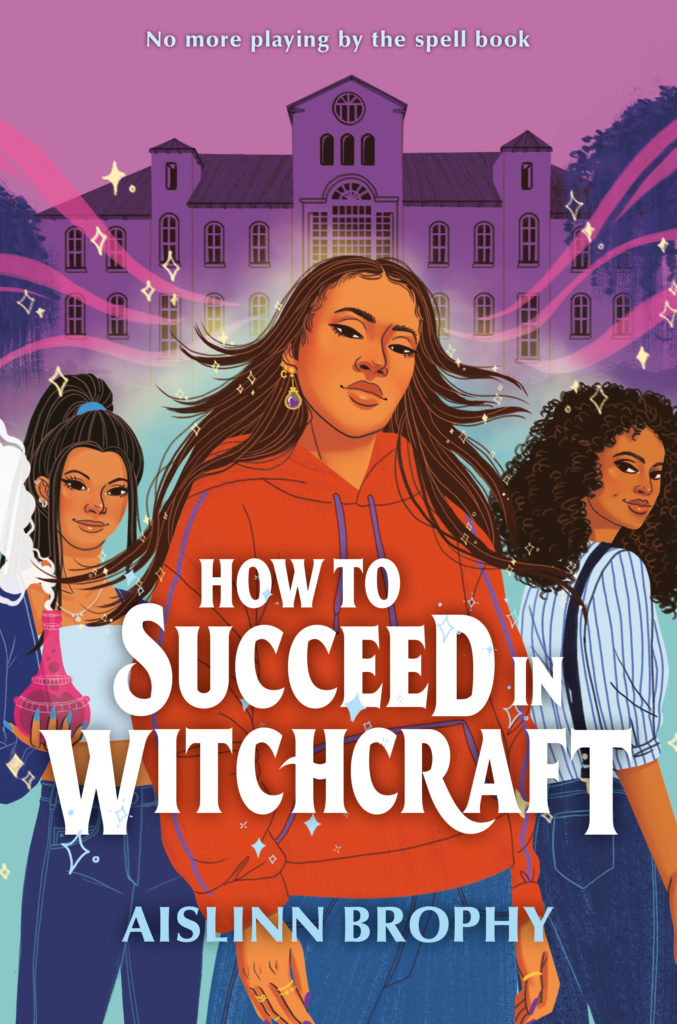
Aside from your work as a writer, what would you want readers to know about you?
I’m an actor! I mostly work in theater, which is why musical theater is such a big part of How to Succeed in Witchcraft. Most recently I had the pleasure of playing Rosalind in a show called Playing Mercury, which is a medieval-period comedy inspired by Shakespeare’s As You Like It.
What’s a question you haven’t been asked yet, but wish you were asked (as well as the answer to that question)?
Here’s my question for myself: What’s your biggest dream as an author?
I would like to write something one day that inspires people to write fanfiction about my characters. Honestly, I can’t imagine a bigger achievement for myself. If I created a story that people liked so much that they felt compelled to make their own art about my imaginary people, I could die happy.
What advice would you give to other aspiring writers?
Find what works for you, and do more of it. There’s no “one way” to be a writer. Actually, the only thing required to be a writer is to write sometimes. There’s a lot of advice floating around out there for writers. Read all the popular books in your genre. Write every day. Don’t write a prologue. Etcetera, etcetera. But if some of that common advice doesn’t seem like quite the right fit for you, that’s cool! Maybe it’s hard for you to read in your genre while you’re writing. Maybe you need to take lots of breaks to refill your creative well. Or maybe you want to write a novel that’s exclusively made up of prologues. These are all valid ways to write. What matters most is that you identify what you’re good at and what type of writing process works for you, and then do that stuff on purpose.
Lean into your strengths! And if you write that prologue book, I want to read it.
What advice would you give for finishing a book?
Get something on the page. You can edit something, but you can’t edit nothing. This is advice I have to give myself regularly.
Are there any projects you are working on or thinking about that you are able to discuss?
I’m currently drafting my second book. I can’t say much about it at this point, since it’s still in early stages, but it’s set in a different world than How to Succeed in Witchcraft. The premise I’ve started with is that the book follows a witch and a non-magical girl who become trapped in a cycle of breaking up and getting back together after a memory spell goes wrong. We’ll see where it goes from there!
Finally, what LGBTQIA+ books/authors would you recommend to the readers of Geeks OUT?
I’ll limit myself to the YA space since I always have way too many books that I want to recommend! Aiden Thomas’ The Sunbearer Trials, Jas Hammonds’ We Deserve Monuments, and Riss M. Neilson’s Deep in Providence are some of the newer/upcoming releases that I’ve been excited about. I also love Ashley Shuttleworth’s A Dark and Hollow Star and H. E. Edgmon’s The Witch King, which both kick off incredible, ambitious queer fantasy series.
Header Photo Credit Nile Scott Studios

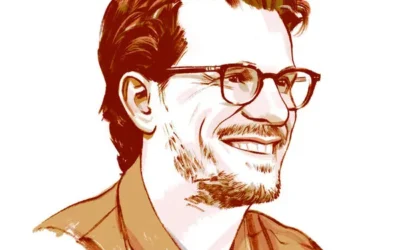
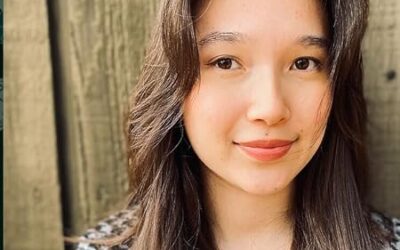
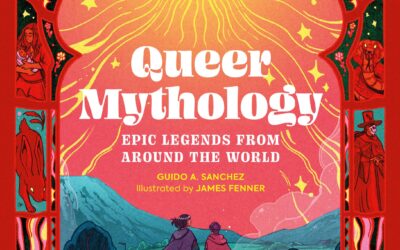
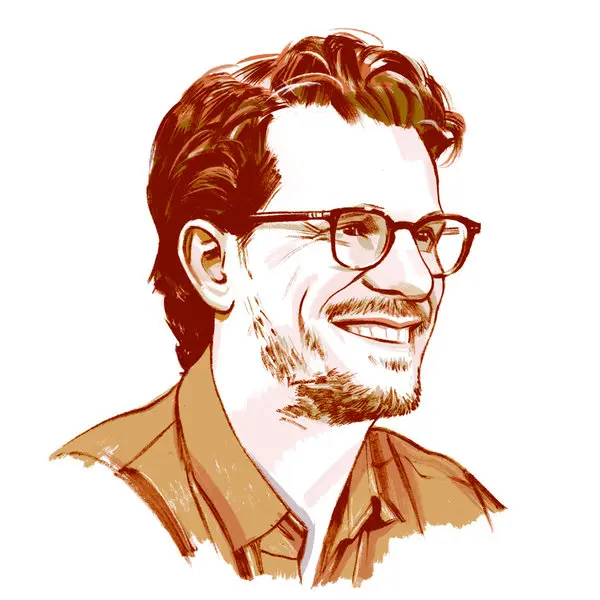
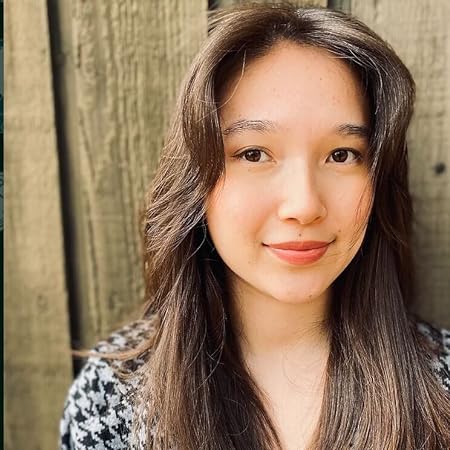
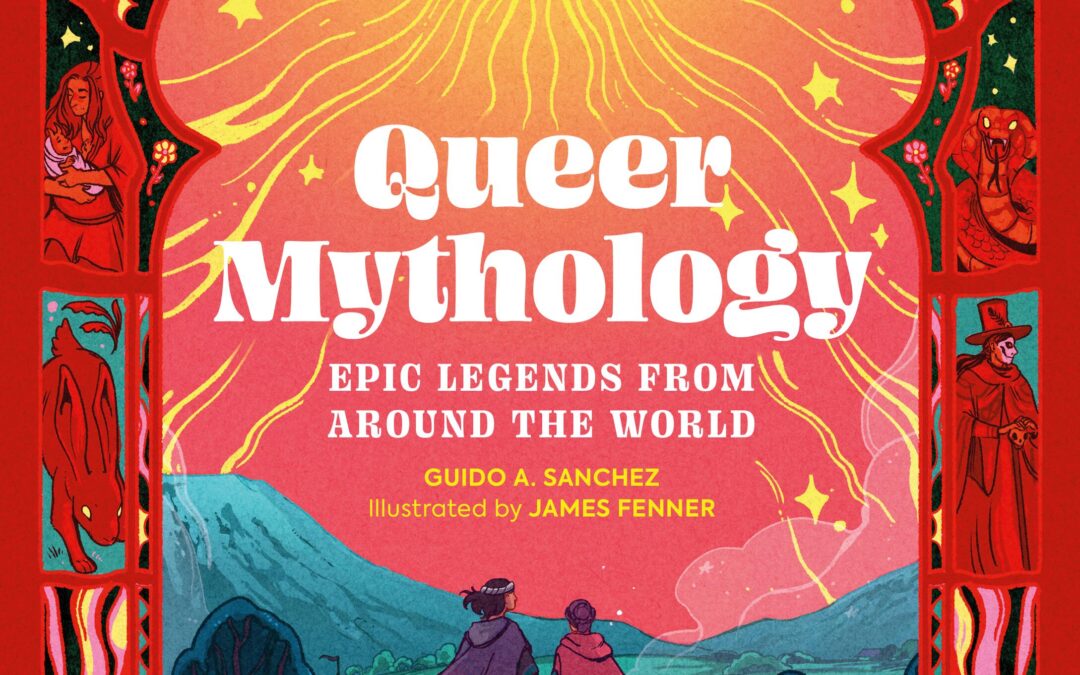
0 Comments